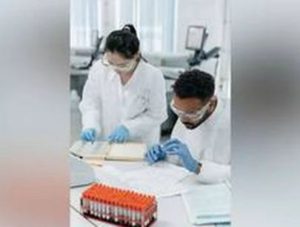
London [UK], May 24 (ANI): A study has identified a new compound that can stimulate nerve regeneration after injury, as well as protect cardiac tissue from the sort of damage seen in a heart attack .
Though further research is needed to translate these findings into the clinic, 1938 is one of just a few compounds in development that can promote nerve regeneration, for which there are currently no approved medicines.Phosphoinositide 3-kinase (PI3K) is a type of enzyme that helps to control cell growth. It is active in various situations, such as initiating wound healing, but its functions can also be hijacked by cancer cells to allow them to proliferate. As a result, cancer drugs have been developed that inhibit PI3K to restrict tumour growth. But the clinical potential of activating the PI3K pathway remains underexplored.
Dr Roger Williams, a senior author of the study from the MRC Laboratory of Molecular Biology, said: “Kinases are ‘molecular machines’ that are key to controlling the activities of our cells, and they are targets for a wide range of drugs. Our aim was to find activators of one of these molecular machines, with the goal of making the machine work better. We found that we can directly activate a kinase with a small molecule to achieve therapeutic benefits in protecting hearts from injury and stimulating neural regeneration in animal studies.”In this study, researchers from UCL and MRC LMB worked with researchers from AstraZeneca to screen thousands of molecules from its chemical compound library to create one that could activate the PI3K signalling pathway. They found that the compound named 1938 was able to activate PI3K reliably and its biological effect were assessed through experiments on cardiac tissue and nerve cells.
Researchers at UCL’s Hatter Cardiovascular Institute found that administering 1938 during the first 15 minutes of blood flow restoration following a heart attack provided substantial tissue protection in a preclinical model. Ordinarily, areas of dead tissue form when blood flow is restored that can lead to heart problems later in life.
When 1938 was added to lab-grown nerve cells, neuron growth was significantly increased. A rat model with a sciatic nerve injury was also tested, with delivery of 1938 to the injured nerve resulting in increased recovery in the hind leg muscle, indicative of nerve regeneration.




 Driving Naari Programme launched in Chandigarh
Driving Naari Programme launched in Chandigarh






























